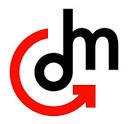Utilities board wants info on smart grid in Iowa

The Iowa Utilities Board (IUB) has scheduled a workshop for Friday, April 16, when it hopes to get an education on smart grid projects in Iowa.
“Smart grid” became a prominent term in the energy conservation discussion during the presidential campaign of Barack Obama. Elements of the smart grid are contained in the Energy Independence and Security Act of 2007.
In essence, the idea is to add some artificial intelligence to the way electrical power is delivered, consumed and monitored with an aim to using less energy and less carbon-based fuel.
Great idea, but there are a variety of interpretations of the smart grid, ranging from a collection of electric meters that tell consumers when they use the most energy to sensors that report – digitally – the exact location and cause of a power outage.
Smart grid has led to the introduction of another term, reflecting an idea that has been around for some time. That term is ARC, short for “aggregators of retail customers.” Those aggregators are companies that compile power that is saved by consumers, typically other companies, then sold on the wholesale market.
Just last month, the utilities board prohibited ARCs from operating in Iowa, following regulators in other states who at this point are a tad confused as to how the ARCs would buy at retail and sell at wholesale without interfering with the markets of their rate-regulated utilities.
The IUB took the action after receiving a notice from the Midwest Independent Transmission System Operator Inc. (Midwest ISO), an organization that coordinates and essentially controls delivery of electricity across state lines, that it had received notice from a company that wanted to operate an ARC in Iowa.
Regional transmission organizations such as Midwest ISO are under orders from the Federal Energy Regulatory Commission to allow ARCs to operate, provided that state utility boards allow them.
“The questions the board is examining include whether the operations of ARCs in Iowa would create problems of rate discrimination or conflicts with Iowa statutes and Iowa rules, such as the laws regarding exclusive electric utility service territories, and how the participation of ARCs in Iowa might impact the cost of electricity for retail customers,” the IUB said in its March 29 order banning ARCs, for the time being at least.
For its part, MidAmerican Energy Co. believes the board should stand by its ruling. The company said in a filing that ARCs violate Iowa utility law as well as the board’s rules and tariffs.
State law requires MidAmerican and Interstate Power and Light (IPL), the state’s other rate-regulated utility, to provide service in certain geographic areas.
Allowing ARCs to operate in those areas could create pricing conflicts and raise other issues, MidAmerican argued.
Interstate Power and Light said in a filing with the IUB that it also opposes the operation of ARCs in the state.
“Today, state regulatory policies and IPL’s tariffs are designed under the assumption that IPL has an obligation to serve, and that only one supplier provides service to individual customers within a determined geographic area. If these obligations are changed, then material changes to laws, retail tariffs and capacity planning systems may also be required,” the company said.
Regarding the smart grid, MidAmerican and IPL will be joined by municipal utilities and rural electric cooperatives in a discussion about what, if any, plans they have for projects.











